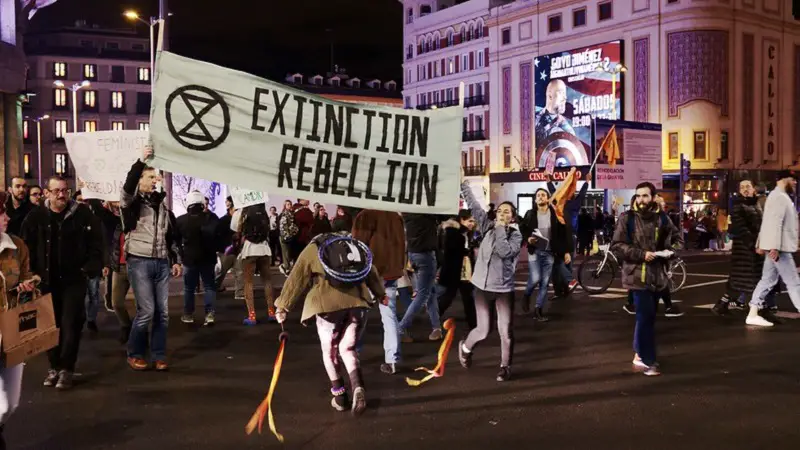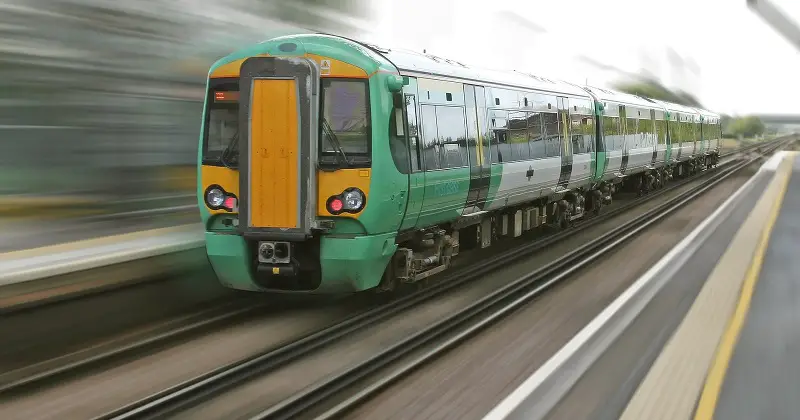
Climate change: why disabled people need to be considered
Last year climate change and our effect on the planet hit the headlines in a big way. It’s a debate that won’t be going away in 2020, and something we all need to start talking and thinking about. But how easy is it to be eco-friendly if you’re disabled. And what about the impact of some eco-changes on disabled people.
Our writer Emma Purcell, who is partially sighted and uses a wheelchair, shares a post from her blog Rock For Disability on tackling climate change if you’re disabled.
Climate change was high on the agenda in 2019, with protests, rallies, global summits and 11,000 scientists saying the world is facing a climate emergency.
Although I do agree that changes are needed to tackle global warming, some things are being done the wrong way and many of the decisions being made are not taking into consideration the lives of disabled people.
Extinction Rebellion
Environmental campaign group Extinction Rebellion wants governments to declare a “climate and ecological emergency” and take immediate action to address climate change.
On that, I do agree – the government needs to do more to tackle the problem now. However, in my opinion, protests at airports, on roads and on public transport, generally disrupting people’s everyday lives, are not the answer.
With regards to blocking roads, surely this not only causes more traffic but, ironically, more pollution. Also, a lot of people driving are doing so because it’s the only form of transport available to them – many of those being disabled people – or it’s their job, for example, they are a taxi driver or delivery person.


With airports, I understand that aeroplanes can cause air pollution. But travelling by plane may be the only option to get to a certain destination for work, weddings, funerals, medical treatment and any other personal commitments.
Interestingly, even former Paralympic cyclist, James Brown, glued himself onto an aircraft at London City airport. Personally, I found this quite hypocritical because, as a sportsman, he has to travel by plane to attend competitions. How does he expect Paralympic athletes to get to Tokyo this summer?
I was also surprised by the protests on the London Underground. As part of tackling climate change, many people choose to travel by public transport. In addition, the trains are electric vehicles, so not as damaging the environment.
To anyone part of Extinction Rebellion, I strongly urge you to tackle climate change in your homes, schools, colleges, universities and workplaces in 2020, instead of through protests that disrupt people’s lives.
Car emissions and public transport
When it comes to deciding to travel by car or public transport with a disability, the majority of the time, there is no option.
90% of the journeys I make are by car because the accessibility to public transport is limited for me.
If I am going to London in the daytime I can travel by train. However, if I ever go in the evening, I have to go by car because there is no guarantee that I will be able to get or access the last train home in time.
Using trains where I live in Alton is too difficult as well. It requires multiple changes, which with having to change platforms and waiting for assistants, is too difficult for me. Moreover, many train journeys are much longer and more expensive than driving, and, as we all know, many disabled people struggle financially.


Last year it was reported that Bristol is aiming to become the first city in the UK to ban diesel vehicles by 2021. Again, this seems like a good idea in theory/ But, for many of us, travelling by car is our only form of transport. I hope that if this does happen, Blue Badge holders are exempt.
I would happily consider an electric vehicle, but I wouldn’t be able to afford it. They also have to be recharged regularly and you can only travel a certain distance before they run out. Plus, in order to have a home charging point fitted, you would need to have access to off-road parking, such as a private driveway or garage.
With the cost and lack of charging points available at the moment, electric cars are not an option for many disabled people.
Plastic straws and bottles
The banning of plastic straws is a big concern for disabled people, and I worry about the impact of removing plastic bottles too.
Currently, I have to rely on both in order to have a drink. At home, I tend to drink water by reusing Fruit Shoot bottles. However, after a period of time, I do need to bin them as they become unhygienic or broken.
I use these particular bottles because they are the right size for me to hold and the spout is easy for me to drink from. They are also the right size to fit under my water machine so I can refill them myself.
When it comes to straws, I use them when I’m out at cafes, pubs or restaurants because mugs or glasses tend to be too heavy or large for me to hold independently.


With the alternatives, I find that paper straws don’t seem to work and they just soak into the liquid. The metal straws cannot be bent, which is difficult for people with disabilities.
I agree that plastic straws and bottles can harm the environment. But if they’re both banned fully, the government needs to come up with a realistic way for people with disabilities to be able to access drinks.
Including disabled people in decisions climate change
It is incredibly important that disabled people are represented in the discussions on climate change and are included in campaigns.
Decision-makers should consider the impact that new climate change legislation will have on disabled people’s lives before taking action.
Disabled people should also be able to campaign and join in protests just like anyone else. Poor accessibility means that many disabled people either can’t access the events themselves or can’t even get to them.
Back in October last year, Extinction Rebellion Disabled Rebels group organised a mobile toilet service for a demonstration. But the hoists and changing tables were impounded by the police before the demonstration even started.
Disabled people have the same rights to protest as non-disabled people and therefore should have the right to access toilets like everyone else.
Climate change in 2020 and onwards
Overall, I totally agree that climate change needs to be tackled. But people are going about it the wrong way.
- Disabled people need to be a part of this worldwide mission.
- Having protests, causing disruptions and getting arrested isn’t the answer.
- Banning plastic straws and bottles will prevent disabled people from accessing drinks.
- Banning diesel vehicles isn’t a viable solution until electric vehicles become easily available and affordable.
- All public transport should be accessible to disabled passengers so that they don’t have to use a car for all journeys.
I would like to see the government discuss climate change more, but until Brexit is over, it looks very unlikely.
What are your thoughts on climate change? Have you been able to make any lifestyle changes to help the environment? Are you disabled and concerned how legislation may affect you? Comment in the box below.
By Emma Purcell
Read more of Emma’s posts by visiting her blog Rock For Disability or connecting with her on Facebook, Twitter @P94Emma or Pinterest.
UPDATE September 2023
In our latest post, we delve deeper into the unique challenges and solutions related to disabled people and climate change. Building on our previous discussions, this new article presents fresh insights from a recent report, “Everyone’s Environment,” published in September 2023. The report highlights key takeaways, policy priorities, and actionable steps for making climate action more inclusive. From health impacts to the role of Disabled People’s Organizations (DPOs), the article offers a comprehensive look at how climate change disproportionately affects the disabled community. Don’t miss this crucial update to stay informed and become a better ally in the fight for environmental justice.
More on Disability Horizons…